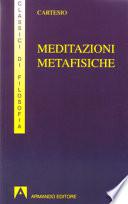Lavori
Discorso sul metodo
Cartesio
Meditazioni metafisiche
CartesioCartesio frasi celebri
Frasi su Dio di Cartesio
da Opere scientifiche, L'Uomo
Origine: Da Il Mondo, 1959, p. 64; citato in Koiré 1979, p. 334
da Il Mondo, 1959, p. 64; citato in Koiré 1979, p. 336
incipit
Cartesio Frasi e Citazioni
“Non mancano dolcezze nell'amare qualcuno senza osare di dichiararglielo.”
Origine: Citato in Dino Basili, L'amore è tutto, Tascabili economici Newton, febbraio 1996, p. 37.
IV; 1996
Discorso sul metodo
“E' atteggiamento prudente non fidarsi mai di quelli che ci hanno ingannato anche solo una volta.”
libro Meditazioni metafisiche
I; 1937, p. 4
Discorso sul metodo
da Meditazioni metafisiche
“La natura ha orrore del vuoto.”
citato in Giuseppe Fumagalli, Chi l'ha detto?, Hoepli, 1921, p. 87-88
Origine: Dalla lettera a Henry More del 5 febbraio 1649; citato in Ditadi 1994, pp. 549-550.
III; 1996
Discorso sul metodo
Origine: Dalla lettera a Chanut del 6 giugno 1647; citato in Ditadi 1994, pp. 547-548.
V; 1996
Discorso sul metodo
Lettera al Marchese di Newcastle
Origine: Citato in AA.VV., Il libro della filosofia, traduzione di Daniele Ballarini e Anna Carbone, Gribaudo, 2018, p. 120. ISBN 9788858014165
Cartesio: Frasi in inglese
“It is not enough to have a good mind. The main thing is to use it well.”
Variante: It is not enough to have a good mind; the main thing is to use it well.
Origine: Discourse on Method
Rules for the Direction of the Mind: X.379
As quoted in [Clarke, Desmond M., 2006, Descartes : a Biography, Cambridge Press, 67, ISBN 978-0-521-82301-2]
Letter to Pierre Chanut (Nov. 1, 1646) as quoted by Amir Aczel, Descartes' Secret Notebook (2005) citing René Descartes: Correspondance avec Elizabeth et autres lettres (1989) ed., Jean-Marie and M. Beysaade, pp. 245-246.
Je pense, donc je suis.
Le Discours de la Méthode (1637)
Variante: I think, therefore I am.
Original Latin: Veritatem inquirenti, semel in vita de omnibus, quantum fieri potest, esse dubitandum
Variant translation: If you would be a real seeker after truth, you must at least once in your life doubt, as far as possible, all things.
Principles of Philosophy (1644)
Variante: In order to seek truth, it is necessary once in the course of our life, to doubt, as far as possible, of all things.
Origine: The Principles of Philosophy
Variante: ... it is a mark of prudence never to place our complete trust in those who have deceived us even once.
Origine: Meditations on First Philosophy
